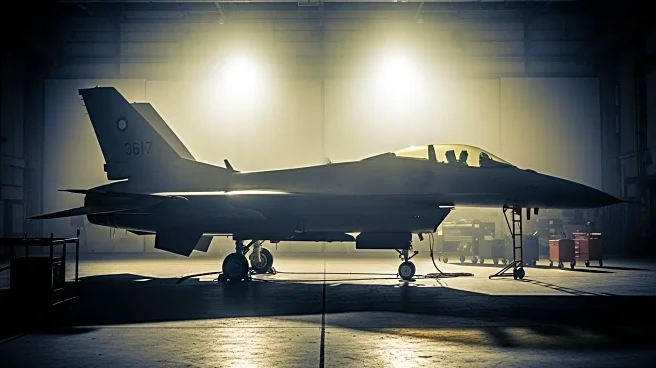What's Happening?
Boeing is actively hiring replacement workers for its defense unit as a strike by the International Association of Machinists and Aerospace Workers (IAM) enters its second month. The strike, involving approximately 3,200 workers, began on August 4 after the union rejected a contract offer from Boeing. The company has decided to implement a contingency plan by hiring permanent replacements to maintain production of military aircraft and equipment, including F-15 fighter jets and missile systems. Boeing's decision has been met with criticism from the IAM Union, which accuses the company of mismanagement and urges a return to negotiations.
Why It's Important?
The hiring of replacement workers by Boeing highlights the ongoing tensions between the company and its workforce, which could have significant implications for labor relations in the aerospace industry. The strike and Boeing's response may affect the production and delivery schedules of critical defense equipment, potentially impacting U.S. military operations and contracts. The situation underscores the challenges faced by companies in balancing labor demands with operational needs, and the outcome could set a precedent for future labor disputes in the sector.
What's Next?
As Boeing continues to hire replacement workers, the IAM Union is likely to intensify its efforts to bring the company back to the negotiating table. The resolution of this strike will depend on whether Boeing and the union can reach a mutually acceptable agreement. The situation may also attract attention from government officials and industry stakeholders, who could play a role in mediating the dispute or influencing its outcome.










